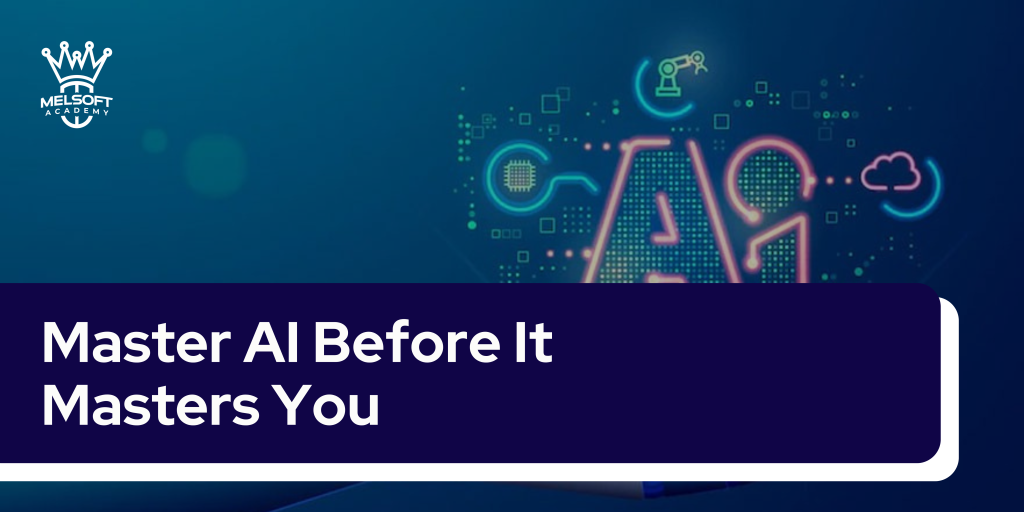Key Takeaways
- Understand AI’s Impact: Recognize the transformative potential of AI across industries.
- Embrace Ethical Practices: Prioritize ethical AI development to ensure fairness and accountability.
- Foster Collaboration: Leverage human-AI collaboration for enhanced innovation.
- Invest in Education: Equip yourself with AI knowledge to stay competitive.
- Drive Responsible Development: Commit to responsible AI practices for societal benefit.
Introduction
Artificial Intelligence (AI) has emerged as one of the most transformative technologies of our time, promising unparalleled opportunities for innovation and efficiency across various industries. From personalized recommendations on streaming platforms to autonomous vehicles navigating city streets, AI is becoming increasingly integrated into our daily lives. However, as AI capabilities continue to advance, it is essential to understand the implications and take proactive measures to harness its power responsibly.
Mastering AI is no longer a luxury; it is a necessity. In this blog post, we will explore what it means to master AI, the ethical considerations involved, and the steps individuals and organizations can take to ensure they are not left behind as AI continues to evolve.
Understanding AI Mastery
What Does It Mean to Master AI?
The concept of “mastering AI” goes beyond mere utilization; it encompasses a deep understanding of its capabilities, limitations, and ethical considerations. Mastering AI involves not only leveraging its potential to enhance productivity and streamline processes but also ensuring that its deployment aligns with ethical standards and human values.
Why is Mastering AI Important?
As AI continues to evolve, businesses and individuals that harness its power will gain a competitive edge. By understanding AI principles, applications, and implications, you position yourself as an invaluable asset in an increasingly AI-driven world.
Embracing Ethical AI Principles
What Are the Ethical Considerations in AI?
As AI technologies become more sophisticated, concerns surrounding their ethical implications become increasingly pertinent. From biases in algorithmic decision-making to the potential for job displacement, ethical considerations must be at the forefront of AI development and deployment.
How Can We Promote Ethical AI?
Organizations and policymakers alike must embrace ethical AI principles such as transparency, accountability, fairness, and inclusivity to mitigate potential risks and maximize societal benefits. This involves:
- Conducting Regular Audits: Ensure algorithms are fair and unbiased.
- Establishing Guidelines: Create clear ethical frameworks for AI deployment.
- Engaging Stakeholders: Involve diverse groups in the conversation about AI ethics.
Fostering Human-AI Collaboration
Why Should We View AI as a Complement to Human Capabilities?
Rather than viewing AI as a replacement for human capabilities, it should be seen as a complement. Human-AI collaboration holds the key to unlocking the full potential of this technology while preserving the unique strengths and qualities that humans bring to the table.
What Are the Benefits of Human-AI Collaboration?
By fostering collaboration between humans and AI systems, we can leverage the respective strengths of each to tackle complex challenges and drive innovation across various domains.
Investing in AI Education and Literacy
How Can We Enhance AI Literacy?
To master AI, individuals must be equipped with the knowledge and skills necessary to understand, interact with, and harness its potential effectively. Investing in AI education and literacy initiatives is crucial to ensure that individuals from all walks of life are empowered to navigate the AI-driven world confidently.
What Educational Resources Are Available?
From basic AI literacy courses to advanced training in AI development and implementation, educational initiatives play a vital role in democratizing access to AI knowledge and expertise.
Prioritizing Responsible AI Development
What Does Responsible AI Development Look Like?
As AI continues to evolve, it is imperative to prioritize responsible AI development practices that prioritize the well-being of individuals and society as a whole. This includes conducting thorough risk assessments, addressing biases and ethical concerns, and ensuring robust mechanisms for accountability and oversight.
Why Is Responsible AI Development Necessary?
By prioritizing responsible AI development, we can build trust in AI systems and foster widespread adoption while minimizing potential negative consequences.
Conclusion
The rise of AI presents unprecedented opportunities for innovation and progress, but it also brings with it significant challenges and risks. To master AI before it masters us, we must embrace ethical principles, foster human-AI collaboration, invest in AI education, and prioritize responsible development practices. By doing so, we can harness the full potential of AI while safeguarding against potential pitfalls, ensuring a future where AI serves as a powerful tool for positive change.
AI has already made significant strides, from intelligent virtual assistants to autonomous vehicles and advanced data analytics. It’s a game-changer that is here to stay, and it’s time to adapt and seize its potential.
To take the first step towards mastering AI, consider enrolling in specialized courses that offer in-depth knowledge and hands-on experience.
Take the First Step Towards Your Dream Job!
Apply Now: Browse Our Bootcamps
Download Our Prospectus: Download Now
FAQs
- What is AI?
AI, or artificial intelligence, refers to the simulation of human intelligence in machines that are programmed to think and learn. - Why is it important to master AI?
Mastering AI is crucial for staying competitive in the job market and leveraging AI’s potential for innovation and efficiency. - What ethical issues are associated with AI?
Ethical issues include algorithmic bias, privacy concerns, and the potential for job displacement. - How can I start learning about AI?
You can begin by enrolling in online courses, attending workshops, and joining AI communities. - What career opportunities are available in AI?
Careers in AI include roles such as data scientist, machine learning engineer, AI strategist, and more. - How can businesses benefit from AI?
AI can enhance customer insights, improve efficiency, and automate repetitive tasks, leading to cost savings and increased productivity. - What is responsible AI development?
Responsible AI development involves prioritizing ethical practices, transparency, and accountability in AI systems to ensure they benefit society.


